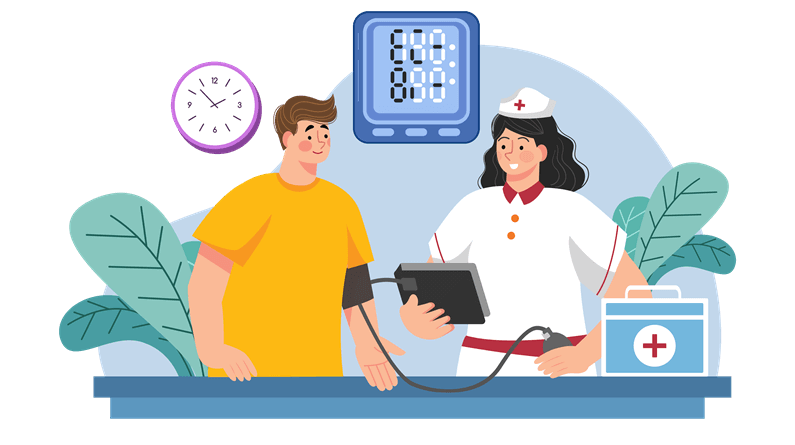Understanding Blood Pressure: High and Low Levels
Blood pressure is the force exerted by blood on the walls of arteries and veins. It’s measured using a sphygmomanometer, which records two numbers: systolic blood pressure (when the heart contracts) and diastolic blood pressure (when the heart rests).
How Blood Pressure is Measured
A doctor measures blood pressure using a sphygmomanometer, stethoscope, and cuff-strip. The cuff-strip is inflated to restrict blood flow, and the pressure reading is taken when the pulse starts and stops.
Blood Pressure Categories
The American Heart Association recommends the following blood pressure categories:
– Normal: Less than 120/80 mmHg
– Elevated: 120-129/less than 80 mmHg
– High Blood Pressure (Hypertension) Stage 1: 130-139/80-89 mmHg
– High Blood Pressure (Hypertension) Stage 2: 140 or higher/90 or higher mmHg
– Hypertensive Crisis: Higher than 180/120 mmHg
– Hypotension: 90 or below/60 or below mmHg
Hypertension (High Blood Pressure)
High blood pressure is diagnosed when readings are 140/90 mmHg or higher over several weeks. It can cause:
– Extra strain on the heart and blood vessels
– Increased risk of heart attack or stroke
– Kidney disease
– Dementia
Symptoms are often invisible, and diagnosis is made after taking blood pressure readings over time.
Hypotension (Low Blood Pressure)
Low blood pressure is diagnosed when readings are 90/60 mmHg or lower. It can cause:
– Dizziness
– Blurred vision
– Weakness
– Confusion
Low blood pressure can occur as a reaction to medication or in association with another medical condition.
Treatment
Both hypertension and hypotension require medical treatment. The type of treatment depends on lifestyle, age, family history, and presence of other medical conditions.
References:
http://www.bloodpressureuk.org/BloodPressureandyou/Yourbody/Lowbloodpressure
https://www.mayoclinic.org/tests-procedures/blood-pressure-test/about/pac-20393098
https://www.medicinenet.com/high_blood_pressure_pictures_slideshow/article.htm
https://www.heart.org/en/health-topics/high-blood-pressure/understanding-blood-pressure-readings
https://www.healthline.com/health/high-blood-pressure-hypertension#overview
https://www.webmd.com/hypertension-high-blood-pressure/guide/diastolic-and-systolic-blood-pressure-know-your-numbers#1

